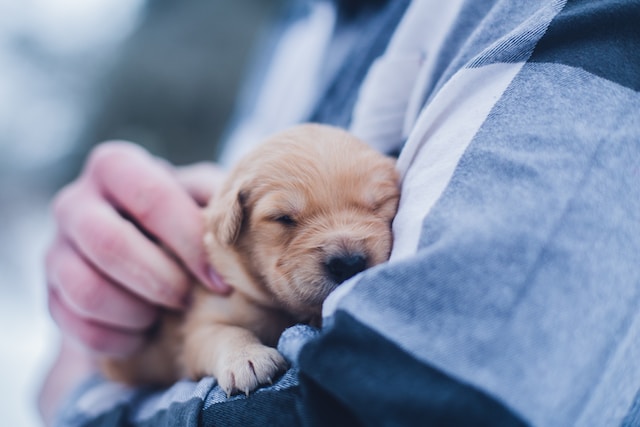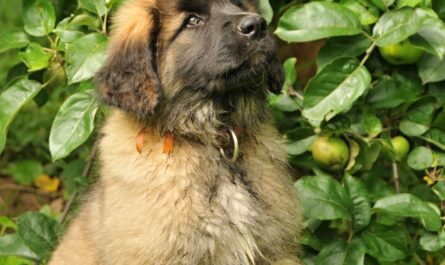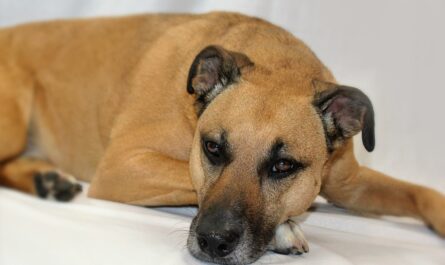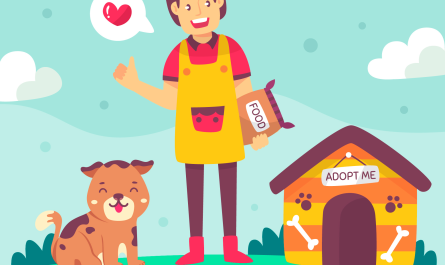Introduction
Coonhound puppies are a delightful addition to any family. Coonhound puppies make incredible pets. In this comprehensive guide, we’ll cover everything you need to know about coonhound puppies; from their breed characteristics and health issues, through care, training and health concerns – let’s dive right in and discover their wonderful world!
The Coonhound Breed
General Characteristics of Coonhounds
Coonhounds are medium to large-sized dogs known for their strength, agility and endurance. Their distinctive baying voice and keen sense of smell make them excellent tracking and hunting dogs.
Different Types of Coonhounds and Their Unique Traits
There are colorful types of hunter, each with its own special traits. Popular models include the Black and Tan Coonhound, Redbone Coonhound and Bluetick Coonhound; each may differ in terms of size, fleece color and disposition- however all share an instinct to quest and fidelity towards its proprietor.
History and Origins of Coonhounds
Coonhounds have a rich history deeply rooted in American culture. They were originally bred for hunting raccoons and other game. Their ancestry can be traced back to English and European hound breeds, brought to America by early settlers.
Choosing a Coonhound Puppy
Before choosing a coonhound puppy as part of your home family, it’s essential to carefully consider all relevant aspects. Consider these before making your choice:
Evaluating Your Lifestyle and Compatibility with the Breed
Coonhounds are active and energetic dogs that require ample exercise and mental stimulation. Assess your lifestyle and ensure that you can meet their exercise needs. They thrive in households that can provide them with plenty of outdoor activities.
Finding Reputable Breeders or Shelter Adopts
When searching for a coonhound puppy, it’s crucial to identify a reliable breeder who puts their pets’ wellbeing first. Alternatively, consider adopting from a shelter or rescue organization to give a deserving coonhound a loving home.
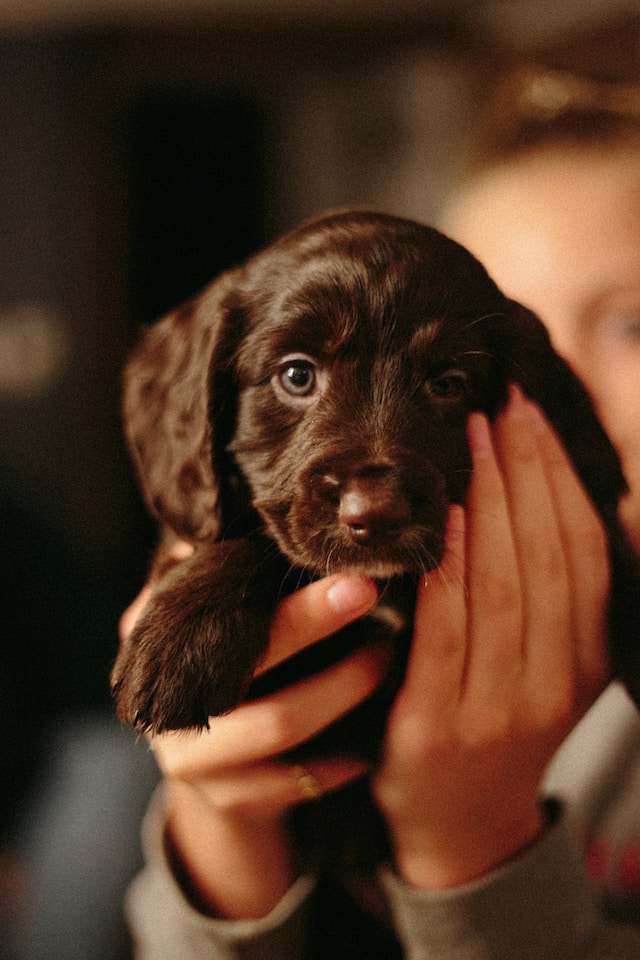
Coonhound Puppy Care
Caring for a coonhound puppy involves various aspects, from preparing your home to ensuring their health and well-being.
Preparing for Your Puppy
Before bringing home a coonhound puppy, make sure that all necessary steps have been taken to provide them with a safe and welcoming home environment. Puppy-proof your home and yard by removing any potential hazards or toxic substances.
Setting Up a Comfortable Living Space for Your Puppy
Designate a cozy area for your puppy with a comfortable bed or crate where they can rest and feel secure. Provide them with toys and chew items to keep them entertained and mentally stimulated.
Essential Supplies for Your Coonhound Puppy
Gather the necessary supplies to meet your coonhound puppy’s needs. This includes food and water bowls, a leash and collar, identification tags, grooming tools, and appropriate bedding.
Health and Nutrition
Proper nutrition and healthcare are crucial for your coonhound puppy’s well-being.
Vaccinations and Preventive Care for Coonhound Puppies
Schedule vaccinations and regular check-ups with a veterinarian to protect your coonhound puppy from common diseases. Follow their recommended preventive care guidelines, including flea and tick prevention and heartworm medication.
Appropriate Diet and Feeding Schedule
Consult with your veterinarian to establish the ideal diet for your coonhound puppy, feeding a balanced meal that fulfills its nutritional requirements and keeping a regular feeding schedule to promote its overall wellbeing.
Exercise and Physical Activity Requirements
Coonhound puppies are energetic and need plenty of exercise to stay happy and healthy. Provide daily opportunities for physical activity, such as walks, runs, or playtime in a secure, fenced area.
Training and Socialization
Early training and socialization are crucial for coonhound puppies to develop into well-behaved and sociable dogs.
Importance of Early Socialization for Coonhound Puppies
Expose your coonhound puppy to various environments, people, and other animals from a young age. This helps them develop confidence, learn appropriate behaviors, and become comfortable in different situations.
Basic Obedience Training Tips
Teach your coonhound puppy basic commands such as sit, stay, and come. Use positive reinforcement techniques, including treats and praise, to reward good behavior and encourage obedience.
Dealing with Common Behavioral Issues
Coonhound puppies may exhibit certain behavioral issues, such as excessive barking or separation anxiety. Address these concerns with patience, consistency, and positive training methods. Seek professional help if needed.
Coonhound Puppy Development Stages
Coonhound puppies go through different developmental stages as they grow. Understanding these stages will help you provide appropriate care and training.
Newborn to 8 Weeks: Early Development and Socialization
During this stage, coonhound puppies rely on their mother for nourishment and learn essential social skills from their littermates. It’s a critical period for bonding and early neurological development.
8 to 16 Weeks: Building Trust and Introducing Basic Commands
Coonhound puppies start exploring their surroundings and form stronger bonds with their human family. Begin introducing basic commands and house training during this period.
4 to 6 Months: Adolescence and Advanced Training
As coonhound puppies enter adolescence, they may test boundaries and display more independence. Continue their training, focusing on advanced commands and addressing any behavior challenges.
6 Months and Beyond: Continued Growth and Maturity
Coonhound puppies continue to grow physically and mentally. Maintain their training regimen and provide opportunities for mental and physical stimulation to support their overall development.
Coonhound Puppy Activities
Coonhound puppies thrive on activities that engage their minds and bodies.
Exercise and Playtime
Regular exercise is vital for coonhound puppies to channel their energy and prevent boredom. Take them for walks, runs, or engage in interactive games that stimulate their senses.
Mental Stimulation and Interactive Games
Coonhound puppies are intelligent and enjoy mental challenges. Use puzzle toys, hide-and-seek games, and interactive feeding toys to keep them mentally stimulated and entertained.
Training Sessions as a Form of Exercise
Combine exercise with training sessions to provide a well-rounded experience for your coonhound puppy. Incorporate obedience exercises, agility training, or scent work to keep them engaged and mentally sharp.
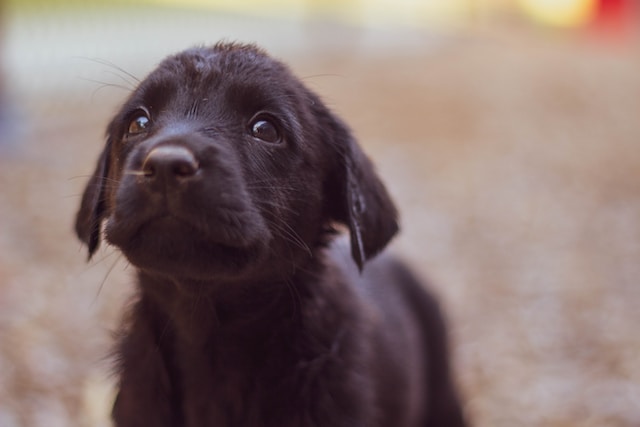
Outdoor Adventures
Coonhound puppies have a natural inclination for outdoor activities. They make excellent companions for hiking, camping, and other adventures. However, ensure their safety by using appropriate gear, monitoring their interactions with wildlife, and following local regulations.
Coonhounds as Hunting or Tracking Companions
Coonhounds have a strong hunting instinct and excel in tracking scents. If you’re interested in hunting or tracking activities, consult with professionals and trainers to develop their skills responsibly.
Grooming and Coat Care
Proper grooming helps keep your coonhound puppy’s coat healthy and free of debris.
Coonhound Puppy Coat Types and Grooming Needs
Coonhounds have short, dense coats that are relatively easy to maintain. Regular brushing helps minimize shedding and keeps their coat clean and glossy.
Brushing, Bathing, and Nail Trimming Routines
Brush your coonhound puppy’s coat once or twice a week to remove loose hair and prevent matting. Bathe them as needed, using dog-specific shampoos. Trim their nails regularly to maintain an appropriate length.
Dealing with Shedding and Managing Allergies
Coonhounds are moderate shedders. Regular brushing helps minimize shedding and keeps loose hair under control. If you or a family member has allergies, consult with a healthcare professional to determine the best strategies for managing allergies in the household.
Health Concerns and Common Issues
While coonhounds are generally healthy dogs, they may be prone to certain health issues.
Common Health Problems in Coonhound Puppies
Some common health issues that coonhound puppies may face include hip dysplasia, ear infections, and obesity. Regular vet check-ups and early detection can help prevent or manage these conditions effectively.
Regular Vet Check-ups and Early Detection
Schedule regular check-ups with a trusted veterinarian to monitor your coonhound puppy’s health and address any concerns promptly. Immunizations, parasite prevention measures, and periodic screenings are essential to their overall well-being.
Tips for Optimizing Health and Well-Being To maintain optimal health and well-being for your coonhound puppy, ensure they receive a diet rich in balanced calories, regular physical exercise, mental stimulation and an environment free from hazards; they should also receive proper grooming care as part of their healthcare requirements.
Coonhound Puppy’s Lifespan and Aging Process
Understanding the lifespan and aging process of coonhound puppies will help you provide appropriate care as they grow older.
Average Lifespan of Coonhound Puppies
Coonhounds typically live between 10 to 14 years, depending on various factors such as genetics, overall health, and lifestyle.
Aging Signs and Changes to Expect
As coonhound puppies age, their physical and mental capabilities may change significantly. Keep a watchful eye out for signs of arthritis, cognitive decline or other age-related conditions that require extra care from you and veterinary assistance; provide them with extra comfort as required.
Providing Proper Care for Senior Coonhounds
Senior coonhounds require special attention and care. Adjust their exercise routine, provide joint supplements if recommended by a veterinarian, and ensure their living space is comfortable and easily accessible.
Summary
In conclusion, coonhound puppies bring joy, loyalty, and adventure to their owners’ lives. By understanding their breed characteristics, providing proper care, training, and socialization, you can raise a happy and well-adjusted coonhound companion. Remember to prioritize their health, happiness, and overall well-being throughout their life journey.
FAQs about Coonhound Puppies
What Is the Temperament of Coonhound Puppies?
Coonhound puppies are known for their friendly and outgoing nature. They are typically affectionate, loyal, and get along well with children and other pets when properly socialized.
How Much Exercise Do Coonhound Puppies Require?
Coonhound puppies have high energy levels and require plenty of exercise to stay physically and mentally stimulated. Make time each day for at least an hour of physical activity such as walks, runs or playtime – whether that’s walking, running or play!
Are Coonhound Puppies Good with Children and Other Pets?
With proper socialization and training, coonhound puppies can be excellent companions for children and other pets. Always supervise interactions between puppies and young children to ensure everyone’s safety.
How Do I Find a Reputable Coonhound Breeder?
Finding a reputable coonhound breeder requires extensive research. When looking for breeders, prioritize health and welfare of their dogs over profit; provide proper documentation; and welcome visitors into their facilities.
How Can a Coonhound Puppy Be Groomed Properly?
Coonhound puppies have short coats that require minimal grooming. Regular brushing, occasional bathing, and nail trimming are the primary grooming tasks to keep their coat and skin healthy.
Are Coonhound Puppies Suitable for First-Time Dog Owners?
Coonhound puppies can be suitable for first-time dog owners who are committed to providing proper care, training, and socialization. However, they require an active and dedicated owner who can meet their exercise and mental stimulation needs.
What Health Issues Are Common in Coonhound Puppies?
Common health concerns for coonhound puppies include hip dysplasia, ear infections, obesity and bloat. Regular veterinary visits, diet changes and preventative measures can reduce their risks significantly.
How long Does It Take to Train a Coonhound Puppy?
Training coonhound puppies may vary depending on their individual personalities and consistency in training sessions, taking several months before desired results are attained. Patience, positive reinforcement, and consistency are keys to effective training sessions.
Can Coonhound Puppies Be Left Alone for Long Periods?
Coonhound puppies are social animals and thrive on human companionship. Leaving them alone for long periods can lead to boredom, anxiety, and destructive behaviors. If you need to be away, ensure they have appropriate mental stimulation and consider hiring a pet sitter or doggy daycare.
How Can I Socialize My Coonhound Puppy Effectively?
Effective socialization involves exposing your coonhound puppy to a variety of people, animals, and environments. Gradually expose them to new experiences, provide positive reinforcement, and utilize reward-based training methods in order to build their confidence and social skills.
Follow these guidelines and invest in your coonhound puppy’s wellbeing; by doing so, you will create a loving and rewarding relationship that will endure throughout their lives.
